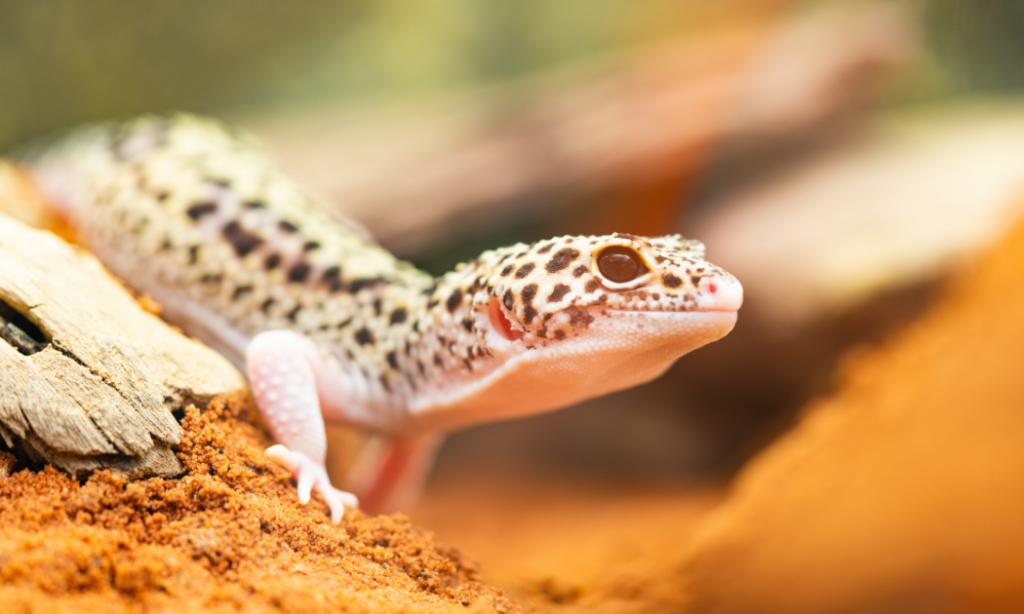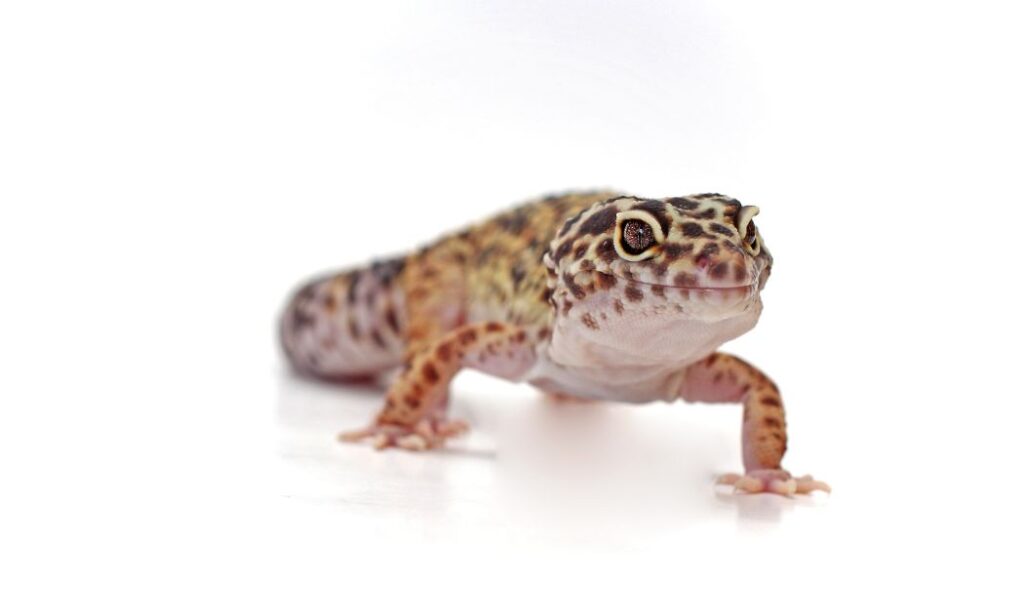Leopard geckos are one of the most popular reptiles among pet owners. They’re relatively easy to care for and don’t require a lot of space, which makes them ideal for people who live in apartments or small homes.
One thing that many new gecko owners wonder is whether or not it’s possible to overfeed their pet. The answer is yes, you can overfeed a leopard gecko, and doing so can have some serious consequences. Here’s what you need to know about feeding your leopard gecko the right way.
The Dangers of Overfeeding Your Gecko
Don’t overfeed your leopard gecko – a moderate diet is important
Leopard geckos are able to eat a lot in one sitting, but that doesn’t mean you should overfeed them
Leopard geckos are a small, common species of gecko known for their distinctive spotted appearance and amazingly capacity to eat large portions in one sitting.
While it may be tempting to feed them their entire meal at once, the reality is this could do more harm than good. Overfeeding geckos can cause plenty of health problems, such as obesity or malnutrition due to an unbalanced diet.
It’s important to remember that when it comes gecko feeding, moderation is key! Leopard geckos should always be fed just enough to keep them healthy and active without going overboard.

Obesity and Other Health Problems from Overfeeding
If you overfeed your leopard gecko, they could become obese and have health problems
Leopard geckos are a great addition to many households, as they are low maintenance and don’t require much room.
With any pet, however, it is important to make sure their health is taken care of.
When it comes to leopard geckos, one of the most important things to remember is not to overfeed them. Overfeeding geckos can lead to obesity and a variety of health problems due to unsustainably high levels of energy intake which can in turn put undue strain on its organs and body systems.
With careful monitoring and moderation, gecko owners can ensure these lovable creatures remain healthy and happy for years to come!
The Right Amount of Food for a Leopard Gecko
2-3 meals/week, No more than 10 insects per meal
Leopard geckos are popular pet reptiles that require careful attention when it comes to their diet. While they may seem like small creatures, overfeeding them can have dire consequences on their health. Owners must understand the proper nutrition that leopard geckos need in order to maintain a healthy lifestyle and avoid problems caused by overfeeding.
Leopard geckos are insectivores, meaning that their natural diet consists primarily of insects such as crickets, mealworms and waxworms. An adult leopard gecko should have 2-3 meals a week, depending on its size. However, it is important to feed them no more than 10 insects per meal in order to avoid overfeeding. Any food offered should also be dusted with calcium or vitamin supplements for added nutritional value.
Recommended Feeding Schedule for Leopard Geckos
It’s best to stick to the recommended feeding schedule for leopard geckos
Feeding leopard geckos is a critical part of caring for these reptiles. Because they are insectivores, they need to eat a variety of prey items in order to get the nutrients they need. Knowing how to feed your leopard gecko is essential for its health and wellbeing. The following feeding schedule should be followed when taking care of this species of reptile.
Adults should be fed two or three times per week with pre-killed insects like crickets, roaches, mealworms, waxworms, and grasshoppers. These can all be purchased from pet stores or online sources. Juveniles should be fed every other day because their growing bodies require more frequent meals than adults do.
In addition to offering insects, dusting them with calcium powder once or twice a week will help provide important minerals that the gecko needs in order to stay healthy.
Proper Diet and Nutrition is Essential for Geckos to Stay Healthy
Leopard geckos are a unique and easy to care for exotic pet. Although very hardy, it is important to follow the recommended feeding schedule provided upon acquiring your gecko as overfeeding can lead to several complications down the road.
Understanding proper diet and nutrition is essential in keeping your gecko healthy, happy and maintain its vibrant colors. Doing so will ensure many years of gecko companionship.
Ask a veterinarian specializing in reptiles for advice
If you’re not sure how much to feed your leopard gecko, ask a veterinarian or reptile specialist
One of the most important things to remember when caring for your leopard gecko is to make sure you’re giving them the right amount of food.
Feeding geckos too much can result in obesity and other health issues, so it’s important to get an accurate estimate on how much to provide them.
If you’re unsure, don’t hesitate to seek advice from a professional; veterinarians and reptile specialists have extensive knowledge about gecko care, so they will be able to give you an educated opinion on what the best amount of food is or can even recommend specific brands and types of gecko food.

Leopard geckos are able to eat a lot of food in one sitting, but that doesn’t mean you should overfeed them. If you overfeed your leopard gecko, they could become obese and have health problems. It’s best to stick to the recommended feeding schedule for leopard geckos. If you’re not sure how much to feed your leopard gecko, ask a veterinarian or reptile specialist.
Related posts:

Hi – I’m Erika, the lead gecko enthusiast here at Geckopedia! I write articles about pet geckos, including what to feed your leopard gecko and how to help your pet gecko live a long, happy life! I graduated with advanced degrees from UC-Berkeley, the University of Southern California (USC) and Indiana University-Bloomington, where I studied Biology and Animal Science. I use my experience to help others learn about gecko care, and I am an advocate for all topics gecko related!
